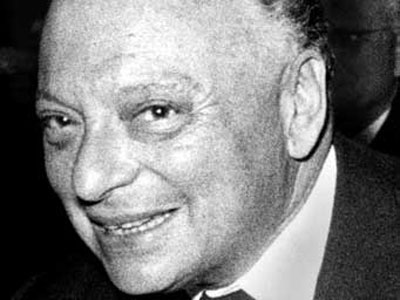Scientific Exploration of an Archetypal Structure

The physicist Wolfgang Pauli (1900-58),
one of the founder of quantum mechanics, was highly fascinated of
C.G.Jungs archetypes. He conceived them as the underlying principles of
the physical world. He even suggested a research program in order to
explore the physical meaning of these archetypes. But this research
program never became reality.
On this part of my website different examples are given how this
research program could look like. It refers to a structure consisting
of different circles and squares that are put together in a specific
way; a structure, which is traditionally called a MANDALA. By making
Einsteins special theory of relativity geometrically compatible with an
omnipresent background this archetypal structure surprisingly came up.
Meanwhile different papers could be published.
Are there two faces of c?
When in 1932 the physicists Roy Kennedy
and Edward Thorndike performed their experiment,
using a technically modified version of a interferometer, they found
the expected null result: The speed of light did also not depend on the
magnitude of the observer' velocity relative to the hypothetically
assumed ether frame.
When in 1887 Albert Michelson and Edward Morley measured their famous
null result, they had only discovered that the speed of light was
independent on the direction of the observer's velocity, but the
independence of the magnitude was not yet tested experimentally. This
was achieved by the KT experiment the first time.
Since this experiment led to the same result as the historical MM
experiment it was almost collectively believed, that special relativity
was proven right again. But in truth the two physicists had discovered
a completely new face of c, which Einstein's theory had not been taken
into account.
This new face of c is parametrized in the same way like the
relativistic one, that is, c = 1. That's the reason why it was
erroneously concluded that the KT experiment has confirmed special
relativity. But this conclusion is the wrongest one that was ever made
in the history of physics.
Although the physical parameter of the new face of c is the same like
the relativistic one, the geometrical blueprint connected with it is
quite different: The relativistic blueprint of c is geometrically given
by a circle (or a sphere), whereas the new face of c is given by a
square (or a cube.
The existence of such a new face of c would have far-reaching
consequences for modern physics: It would show that special relativity
is an incomplete (i.e. approximate) theory about space and time.
In the paer "The Hidden Face of c" this thesis is explained in detail.